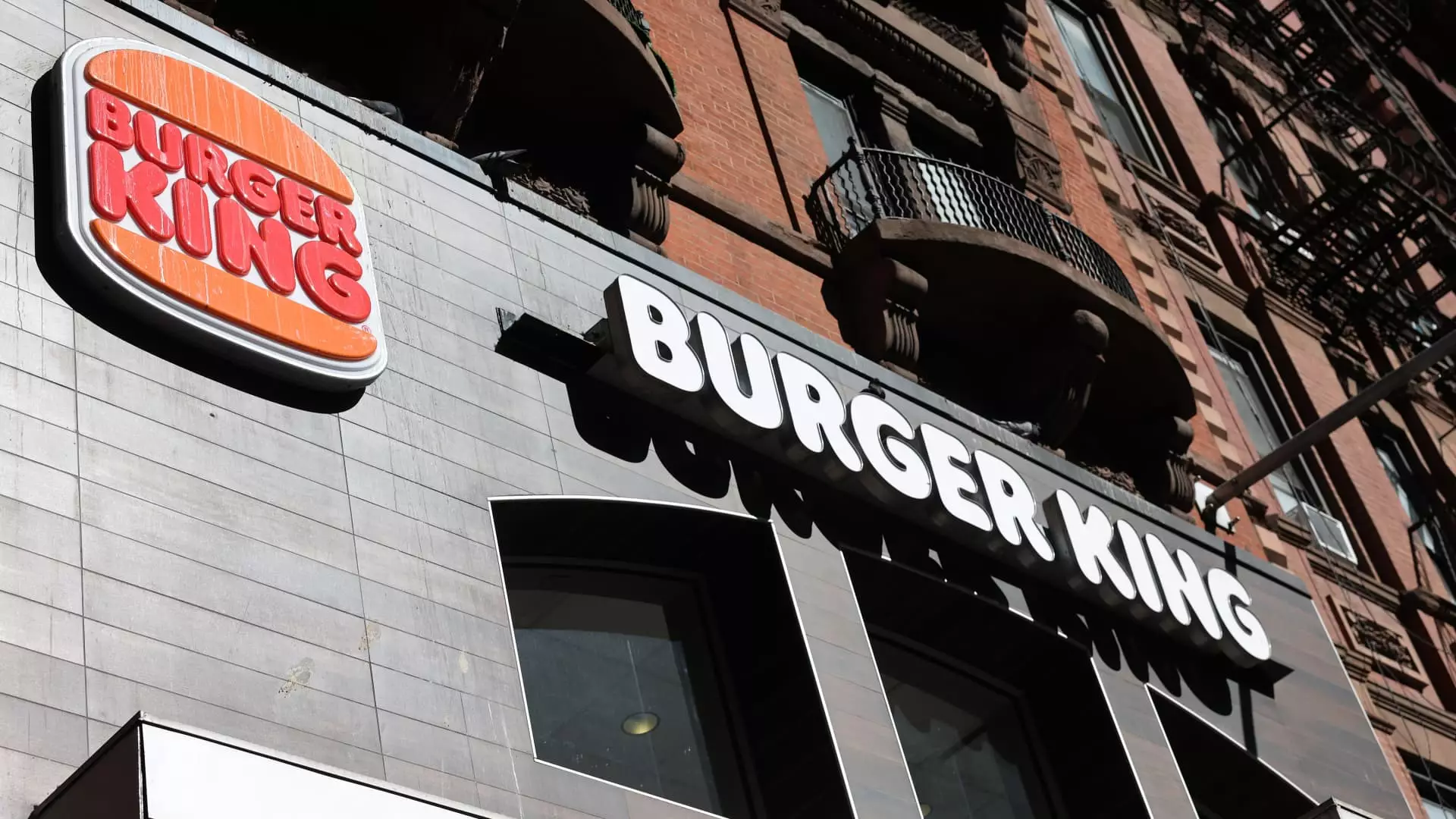In a business landscape hungry for growth, Restaurant Brands International (RBI) stumbled in the first quarter, revealing an unsettling 0.1% overall same-store sales growth. This figure, while slightly positive, obscures a more concerning reality: the financial health of its flagship chains—Popeyes, Burger King, and Tim Hortons—has deteriorated. With earnings per share at 75 cents, falling short of the anticipated 78 cents, investors are rightfully alarmed. The drop in net income from $230 million to $159 million year over year reinforces the belief that something is significantly amiss within the corporate structure.
Consumer Reluctance: A Clear Sign of Trouble
The decline in sales is particularly striking when considering that the fast-food sector was anticipated to rebound this year. Instead, RBI’s largest brands reported notable downturns—Tim Hortons suffered a 0.1% loss, Burger King fell 1.3%, and the bleakest figure came from Popeyes with a staggering 4% drop. Such predictable disappointing outcomes should serve as a warning to the company. A growing culpability lies in the hands of an increasingly cautious consumer base grappling with economic uncertainty. Infamous for using marketing ploys to fuel fast growth, RBI may now find that these remnants of past strategies are ineffective amid shifting public sentiments.
Brand Misalignments: The Cost of Turnarounds
RBI’s investment in the turnaround of Burger King—a venture fraught with seemingly endless operational hitches—has yet to yield fruitful results. For over two years, the chain has been struggling to regain its footing. The 1.1% decline in U.S. same-store sales displays a glaring failure not just to recover but also to innovate in a saturated market. Fast food giants must adapt, and RBI has managed to lag behind, making its already beleaguered position even more precarious.
Looking Beyond the Numbers: A Strategic Shake-up Required
The report points to a need for not just a reactionary approach to marketing campaigns but a transformative overhaul of RBI’s strategy itself. The underwhelming sales figures are not isolated events but rather a series of decisions that have led to misaligned brand strategies that fail to resonate with contemporary consumers. With demographic changes and consumer preferences evolving rapidly, RBI must pivot from its past playbook to strategies that prioritize genuine consumer engagement over mere promotional efforts.
In a company as seasoned as Restaurant Brands International, these results are a wake-up call. Failing to adapt in a dynamic market could send the giant reeling into deeper financial challenges, questioning whether its leadership is equipped to catch up with both consumer demands and contemporary market conditions in a world that no longer plays by yesterday’s rules.


Leave a Reply